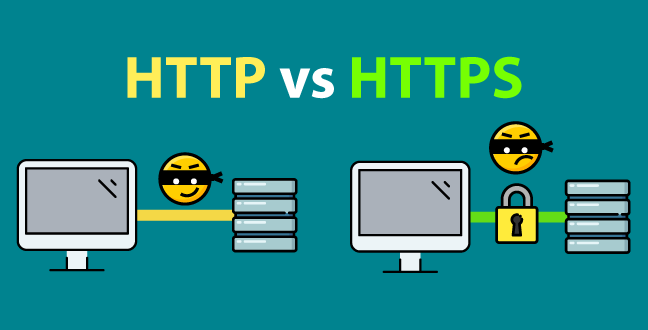In the vast ocean of the Internet, data transmission and exchange are the basis for supporting various online services and applications. In this process, HTTP (Hypertext Transfer Protocol) was once the mainstream protocol for web page transmission. However, as network security threats become increasingly severe, HTTPS (Hypertext Transfer Security Protocol) has gradually emerged and become the standard for modern network communication. So, what are the significant advantages of the HTTPS protocol compared to the HTTP protocol?

1. Data encryption to protect privacy
The core advantage of the HTTPS protocol lies in its data encryption capabilities. Unlike HTTP's plain text transmission, HTTPS encrypts data through the SSL/TLS protocol to ensure that the data is not intercepted or tampered with by a third party during transmission. This feature is crucial for protecting users’ sensitive information, such as personal information, account passwords, payment details, etc., effectively preventing the risk of data leakage and theft.
2. Identity verification to ensure trust
HTTPS not only encrypts data, but also introduces an authentication mechanism. When establishing a connection, the server presents the client with an SSL certificate, which is issued by a trusted third-party Certificate Authority (CA) and is used to prove the server's identity. By verifying the validity of the certificate, the client can confirm that the server it communicates with is authentic and trustworthy, thereby effectively preventing security risks such as man-in-the-middle attacks and phishing websites.
3. Data integrity verification to prevent tampering
The HTTPS protocol also has the function of data integrity verification. During data transmission, HTTPS uses a message authentication code (MAC) or hash function to ensure data integrity. If the data is tampered with during transmission, the receiver can detect anomalies through verification and refuse to receive or take other security measures. This feature is important for maintaining data authenticity and reliability.
4. SEO optimization to improve rankings
As search engines attach great importance to website security, the HTTPS protocol has become one of the important factors affecting website SEO rankings. Mainstream search engines such as Google have made it clear that they will give higher trust and ranking weight to websites that use the HTTPS protocol. This means that websites using the HTTPS protocol are more likely to get better placement in search results, thereby attracting more traffic and users.
5. Wide compatibility, supporting multiple browsers and devices
The HTTPS protocol has broad compatibility and supports a variety of browsers and devices. Whether it is PC or mobile, whether it is mainstream browsers or other applications, HTTPS can provide a stable and secure communication environment. This feature ensures that users enjoy a consistent security experience across different devices and platforms.
6. Prevent content hijacking and ensure user experience
The HTTPS protocol can also effectively prevent content hijacking attacks. This kind of attack usually occurs during the data transmission process, and the attacker affects the user's browsing experience or steals user information by tampering or inserting malicious content. The encrypted transmission characteristics of HTTPS prevent attackers from easily tampering with the transmitted content, thereby ensuring the integrity and security of the user experience.
in conclusion
To sum up, the HTTPS protocol has significant advantages over the HTTP protocol in terms of data security, identity verification, data integrity verification, SEO optimization, compatibility, and prevention of content hijacking. As network security threats continue to evolve and escalate, HTTPS has become the standard configuration for modern network communications. For enterprises and individuals, adopting the HTTPS protocol not only respects and protects user privacy and data security, but is also an important measure to enhance brand image and user experience. Therefore, when building and operating online services and applications, priority should be given to using the HTTPS protocol to ensure the security and reliability of communication.
Related Recommendations
- Brand protection and agency: A comprehensive guide
- How does a crawler use proxy IP to collect data through HTML and CSS?
- Understand the value of purchasing a US IP address
- Proxy server provides important protection for network security
- The role of proxy IP in solving IP restrictions
- Cross-border e-commerce product selection skills! Mastering these tricks makes the store more competitive
- What are the functions of HTTP proxies? How to choose?
- What does IP Proxy Status Disable mean?
- Remote work and static IP: ensuring remote connection stability
- Enhance business operations: Use agents to improve performance

